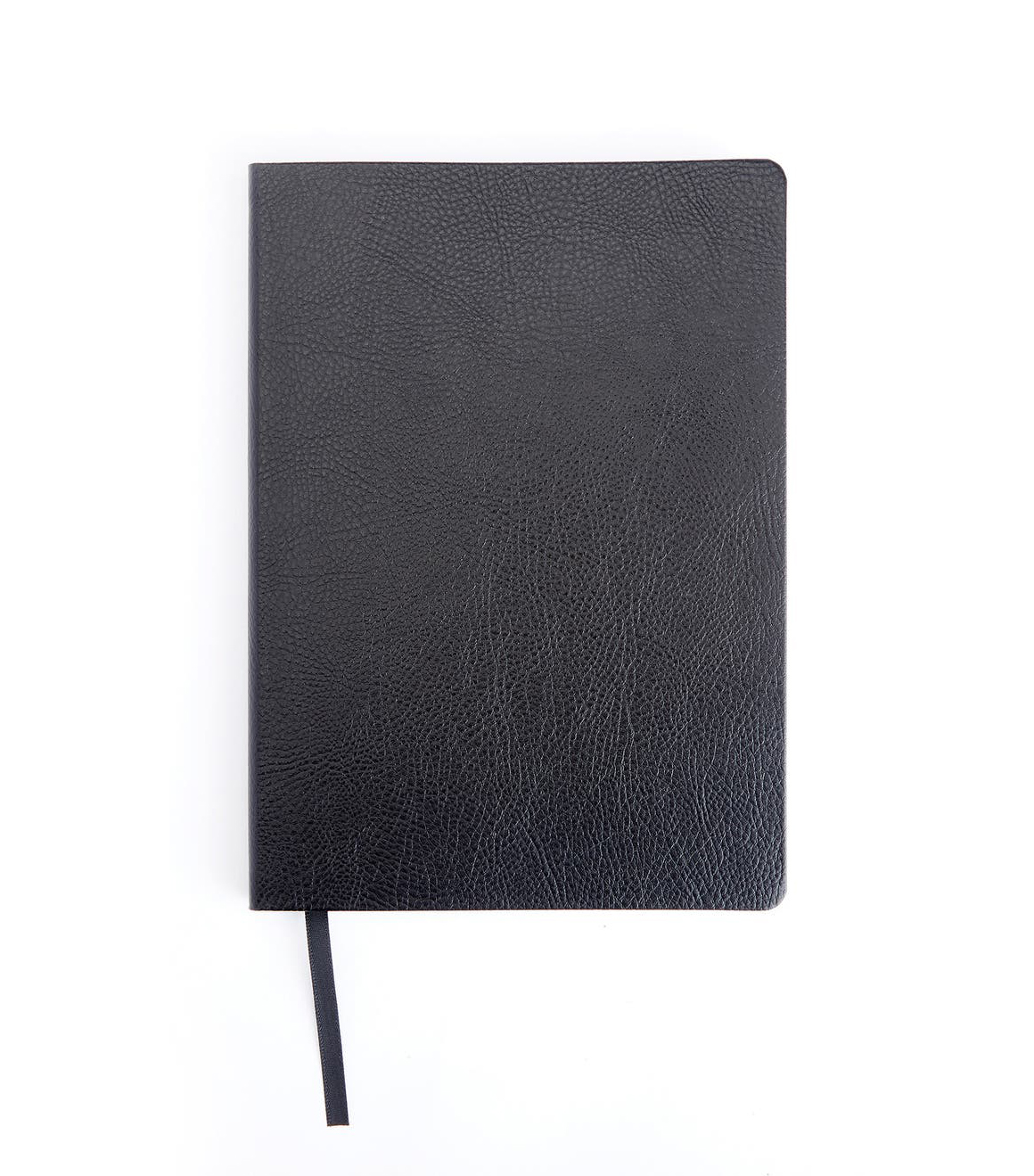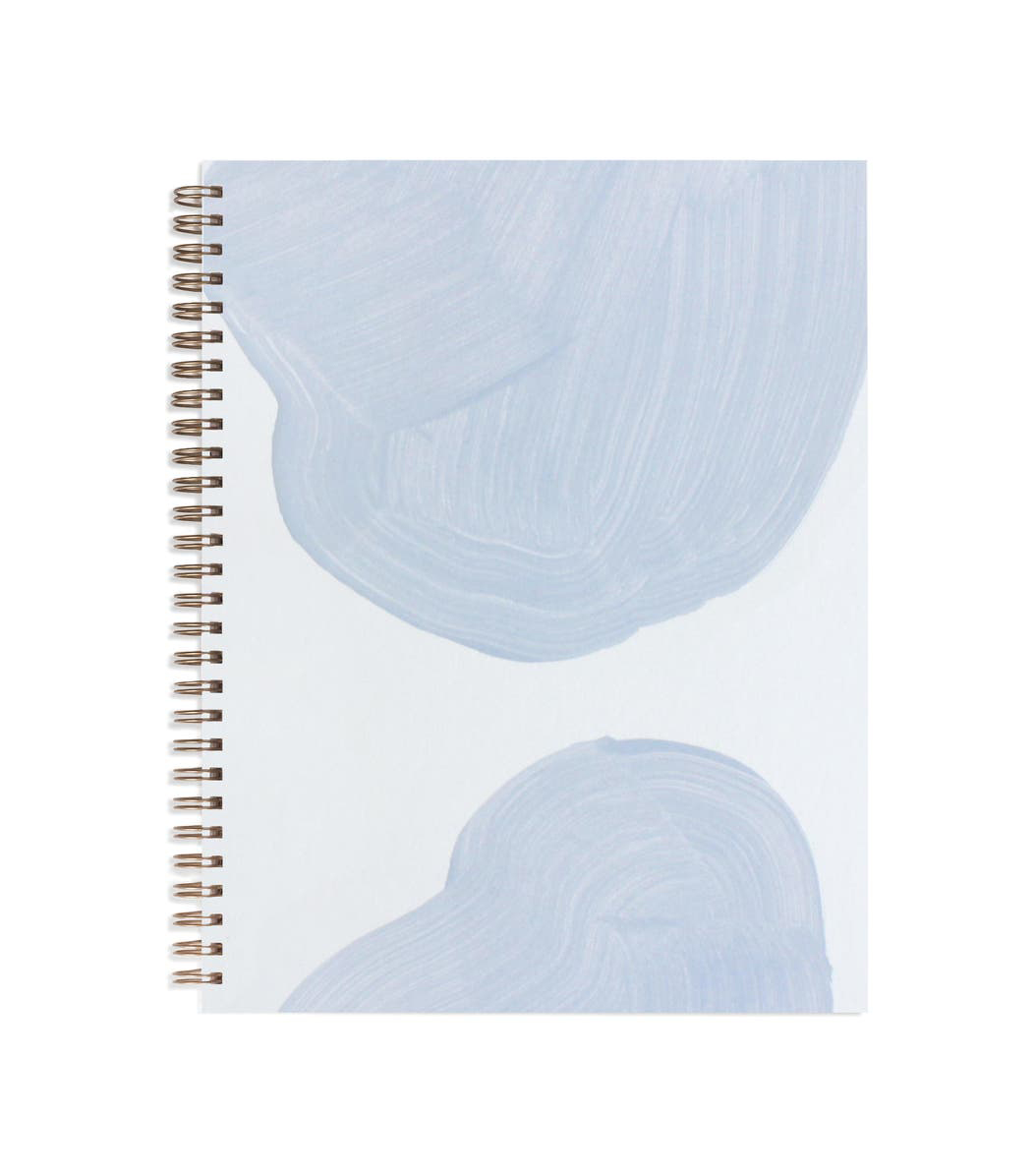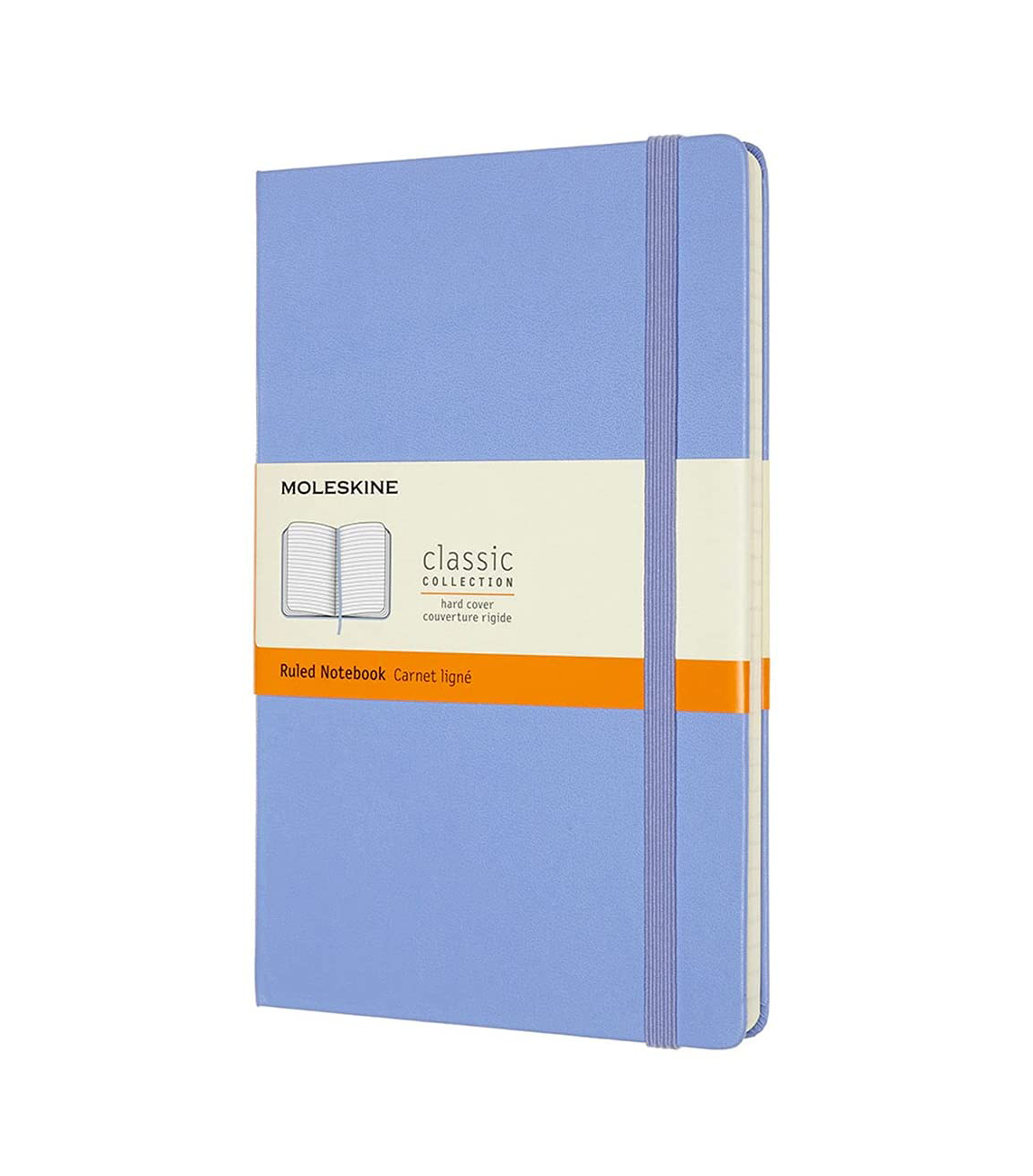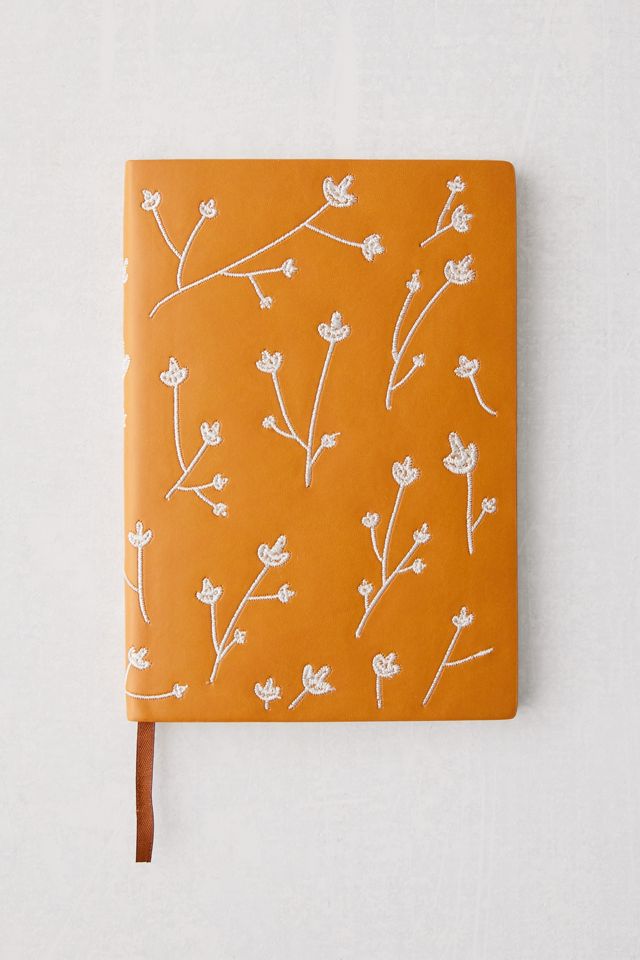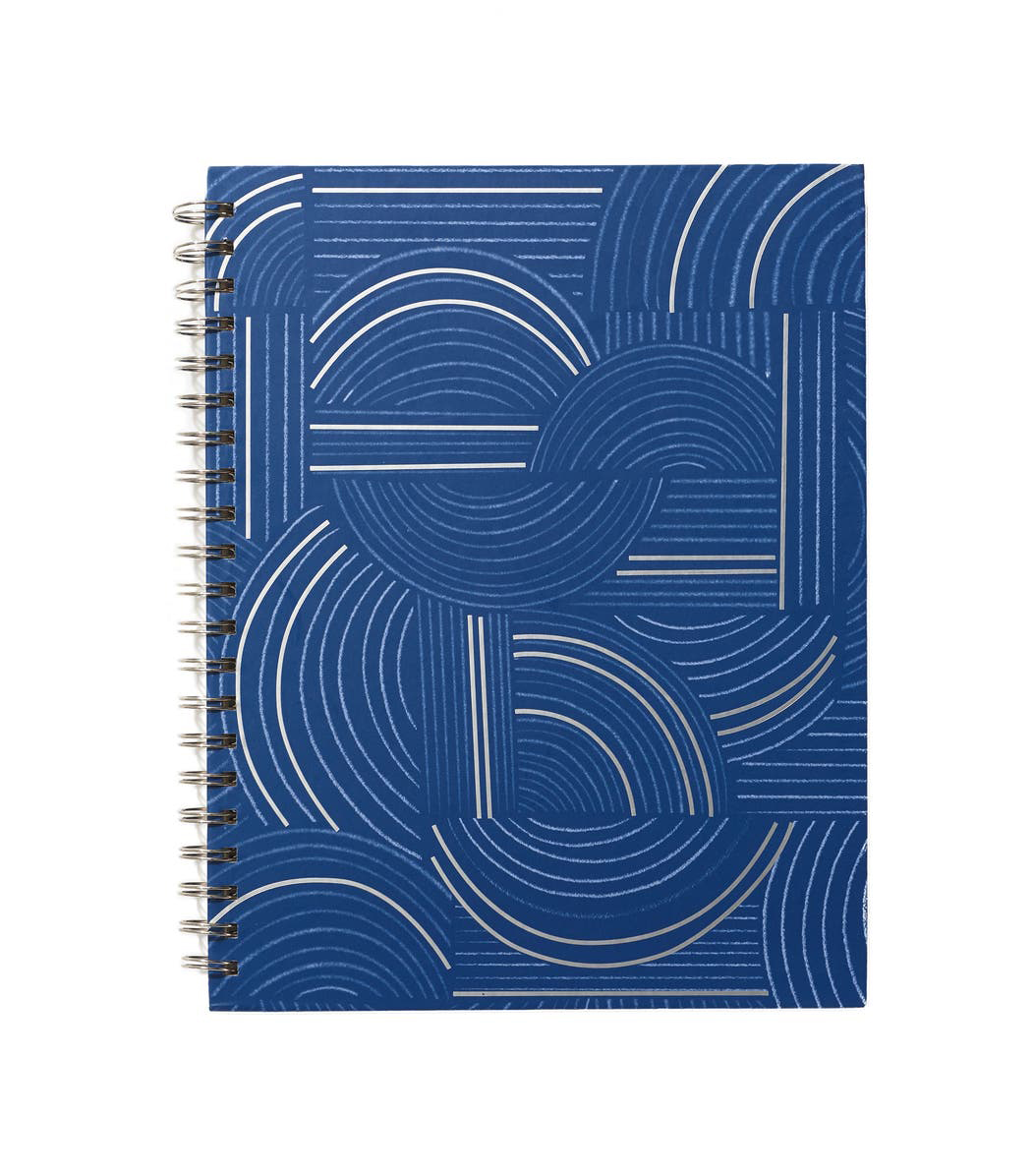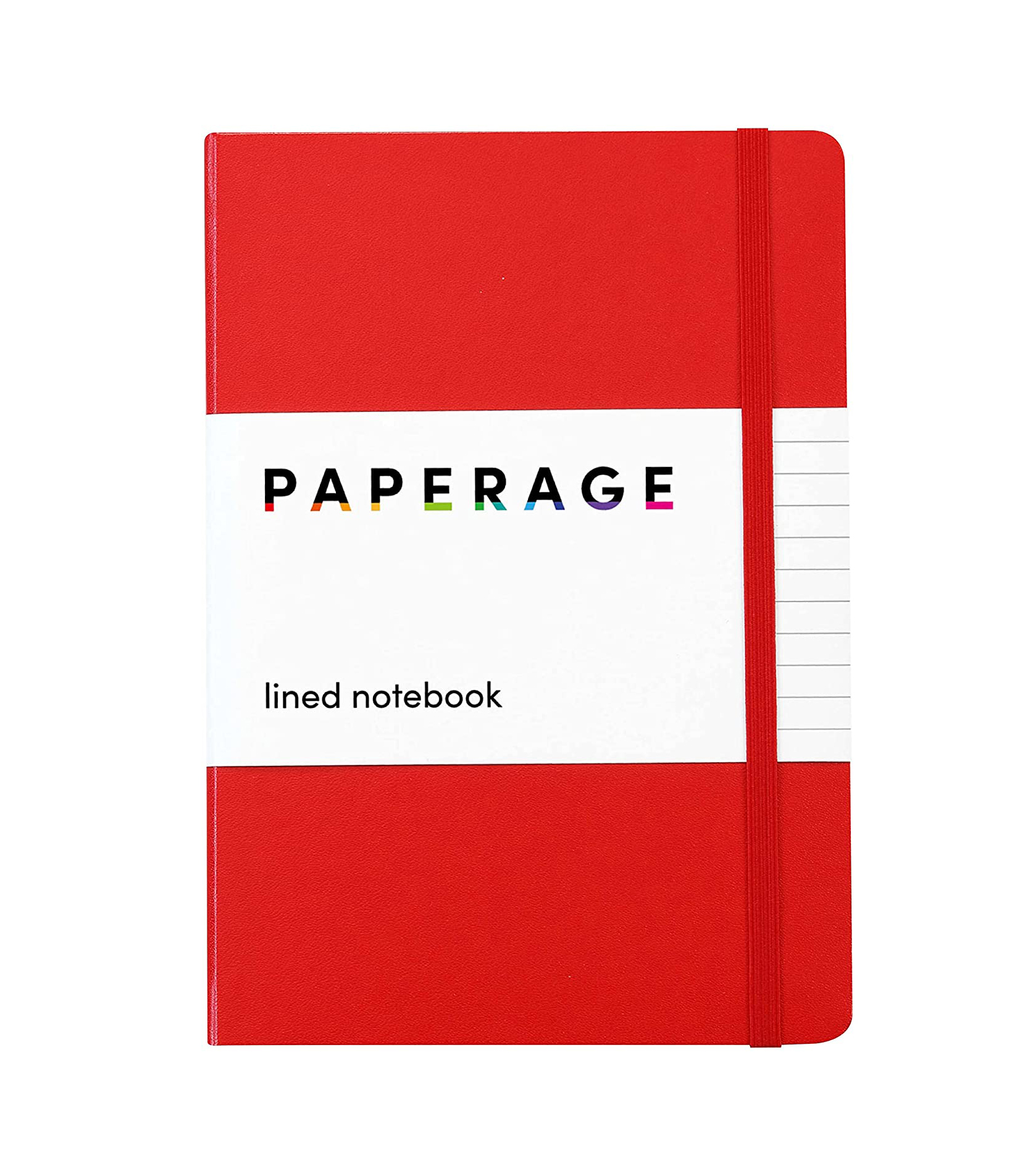This 5-Minute Mental Health Practice Will Make a Big Difference in Your Life

Life can get stressful. If you're nodding your head vigorously in agreement, it's nice to know we're all in the same boat, right? There are just so many things to worry about or be anxious about—whether it's work, relationships, health, money, the state of the world… I don't want to keep going because it can get dark real quick.
What helps when dealing with stress is making sure you're taking time for your mental health. It can seem so impossible to do that, but some methods and strategies only take a few minutes and can do wonders. One such practice? Journaling. It can take just about five minutes a day to get into a routine that may make a big difference in your life.

"Journaling is an opportunity to be in conversation with ourselves—to reflect, to explore, to wonder, to ask, to answer," explains Jamie Goldstein, PsyD, clinical psychologist and therapy experience lead at Coa, the gym for your mental health. "Anything and everything can find its way up and out through journaling. What's important about this process is the safety it provides to be our whole selves and the empowerment it offers to be our own teachers. When we establish a regular journaling practice, we can look back on our lives and learn from our very own musings and experiences."
The act of journaling can serve as a release when we are at max capacity, Goldstein says. And the journal itself can be seen as a container or space that is just for us. "Without a release, we may very literally find our thoughts, feelings, and questions leaking out into places we may not want them to be yet," she says. "The journal is a space we can come back to time and time again, a space that will always have room for us where nothing is too big or too small to be held. A journal is a container that can lovingly hold each and every part of us."

Anyone can benefit from journaling—yes, even if you're not much of a "writer." "The benefits of journaling are to bring you back to connection when you feel disconnected from self and others," says Ivonne Melgar, LCSW, the founder of Free to Be Wild Healing and a Frame therapist. "Journaling helps us to record our experiences, achieve goals, find inspiration, and grow."
But that's not to say that journaling is 100% easy. It can be difficult to feel vulnerable and release all of those thoughts and feelings onto paper. "We are making these thoughts and emotions real, speaking to them by naming and expressing it on the page," Goldstein says. "There are all sorts of pains and discomforts that we tend to shy away from in hopes that if we don't talk about them, or write about them, they somehow will be less real. When we do this, we actually end up making them bigger, badder, and gnarlier because that takes up internal space until they have nowhere else to go."
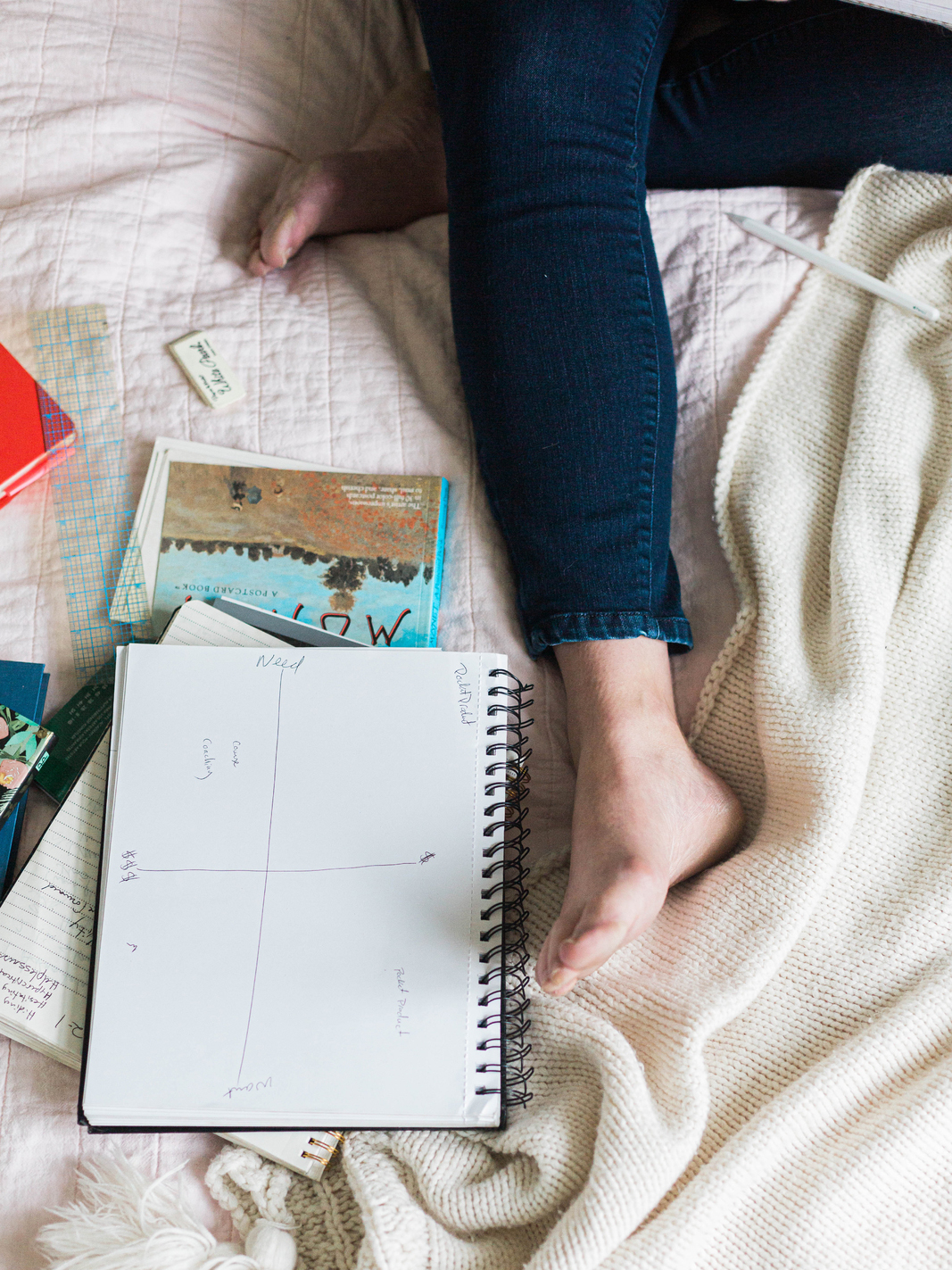
It's also important to note that journaling isn't for everyone. According to Goldstein, if the idea of journaling brings a sense of pressure or total disgust, you might not benefit from it. But if the idea brings some discomfort, just know that you can work with it—trying something new can feel awkward or uncomfortable at first.
Wondering how to start journaling? Ready to give it a whirl? Take a look at some tips below.
1. Find a Journal
Of course, you've got to get something to write in. You can use an empty notebook that you already have or maybe buy a new one that makes you feel happy. "Find a journal that speaks to you," Goldstein says. "There are all sorts of places you can journal: a Google Doc on your computer, an app on your phone, a guided book, a book of blank pages. The trick is to find the outlet that gives you the opportunity to let thoughts, feelings, and reflection flow out without much interruption. For me personally, it's a black G2 Pilot pen and lined pages that are leather bound."
2. Look for Journaling Prompts
If the thought of just winging it when you're writing makes you nervous, Melgar suggests searching for "journaling prompts" online. You can also buy a journal with pre-filled prompts. Goldstein recommends Practice You by Elena Brower, which features thought starters in various categories such as "I feel, I see, I understand, I speak."
3. Create Space for Yourself

"One of the ways we can step more fully into a writing practice, even when it's hard/painful/uncomfortable, is to remind ourselves that we are creating space for our full selves and that the pen and pages are there to offer us a release valve and true witnessing," says Goldstein.
4. Try Out Different Times and Environments

Goldstein recommends trying to journal at different times and at different places to see what works best for you. "Journal in places that allow you to be you. Maybe it's at your local coffee shop, dog park, or in the comfort of your home," Melgar adds.
5. Add Music
"Feel into the process by listening to music that inspires or helps clear your mind," Melgar says. "Healing beats, which are easily found on the internet and are free, are a great place to start."
6. Create a Schedule
Once you figure out the best time and place for journaling, you can start to include it in your routine. "Make journaling a healing ritual, not a chore," Melgar says. "Scheduling journaling at least five minutes or more into your daily practice helps create a healthy pattern of checking in with yourself daily."
7. Don't Overthink

It can be easy to get in your head about it and overthink the process. But don't do that! "Journaling is not about perfection. It's about connection. Just start writing or even drawing whatever comes into your consciousness," Melgar says.
8. Start With One Word
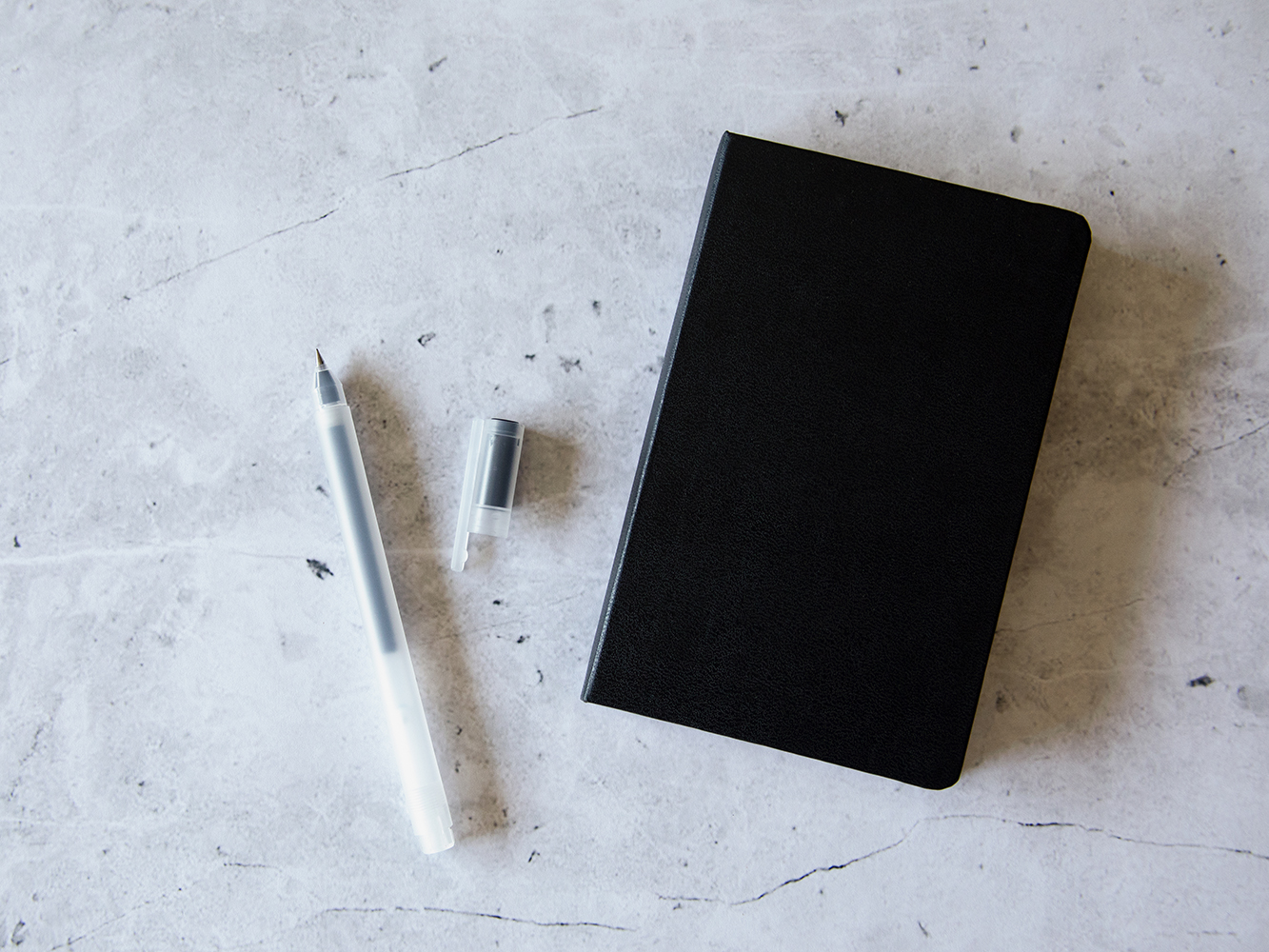
Heck, you don't even have to start with a full sentence—no one is grading you on this. "If you don't know what to write about, start with one word that describes how you are feeling, such as stuck, grateful, or happy," Melgar suggests.
9. Don't Worry About Being a Good Writer

"Many people believe that you need to be a good writer or that you must know what you want to write about in order to start journaling," Melgar says. "This is the biggest mistake that I can think of. To me, journaling is a process. It is the unfolding of our truest thoughts and feelings. Looking at journaling this way: We can understand that sometimes our entries are messy. They don't always make the most sense in the moment, but they help us to connect, and this is far more powerful than making the entry perfect."
10. Bring Your Journal With You
You never know when you need to let something out. Goldstein recommends carrying it with you if possible. "Over the years, I've found that creating space for quiet reflection is more likely to happen when I have my journal with me. That could be when you're traveling, weekends at your in-laws, or even going out for a walk," she says.
11. Be Consistent
Consistency is key for all things, right? "The more you do it, the more natural it becomes," Goldstein says. "See what a daily cadence for one week would feel like. As a therapist, some of the richest, juiciest, deepest conversations come on the days when someone comes to therapy and says, 'I don't feel like I have a lot to talk about.' The same process can happen in the moments when we say to ourselves, 'I don't feel like I have a lot to write about.' Writing during these times allows room for other parts of ourselves to unfold."
12. Give It Time
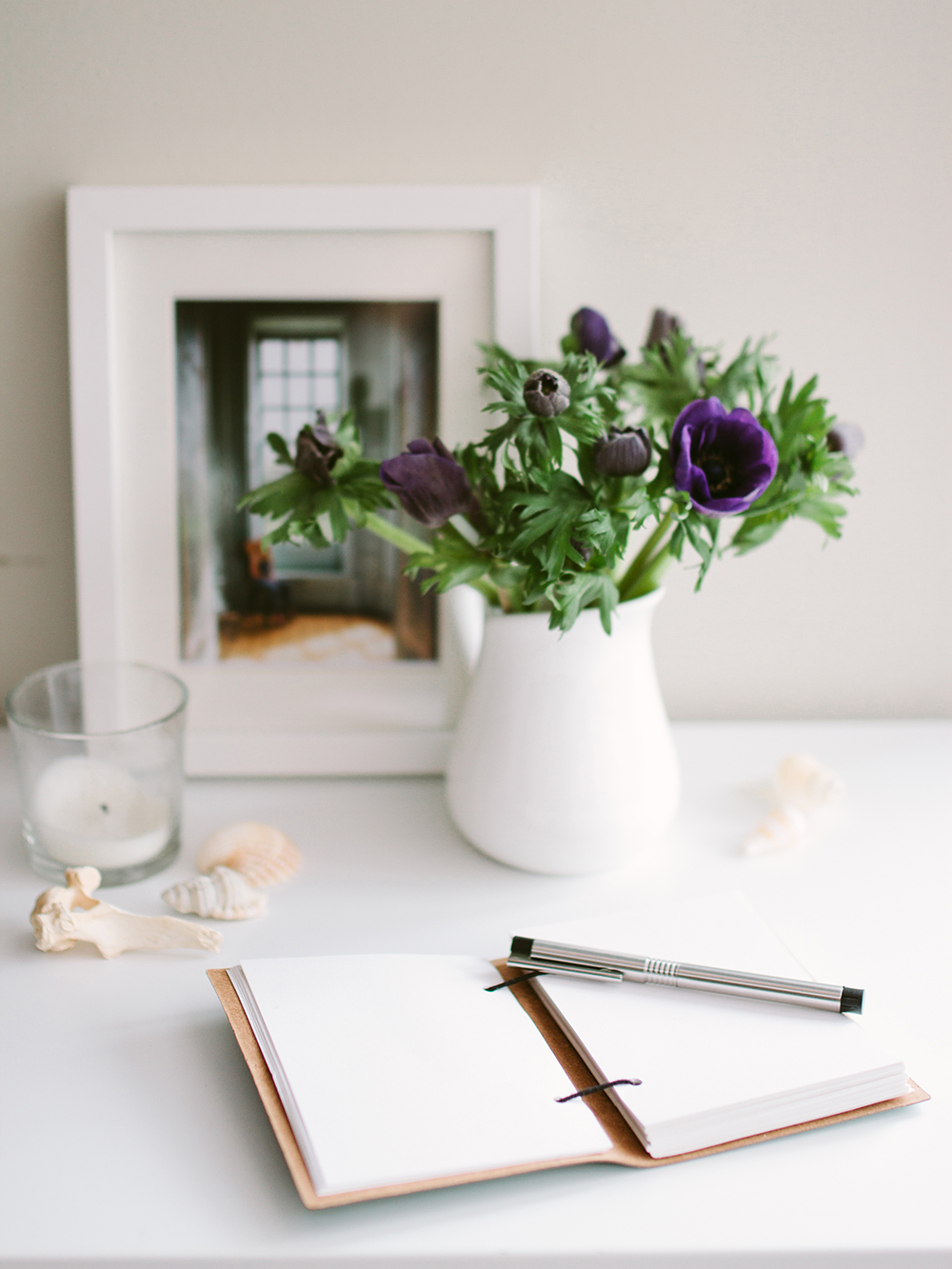
You might not be a good journaler overnight, and that's okay. Give it time. "Whenever something is a new practice, it's easy to let it slip for a whole bunch of reasons—we aren't used to it, it feels awkward or uncomfortable, or we're not sure it's 'working,'" says Goldstein.
13. Don't Pressure Yourself
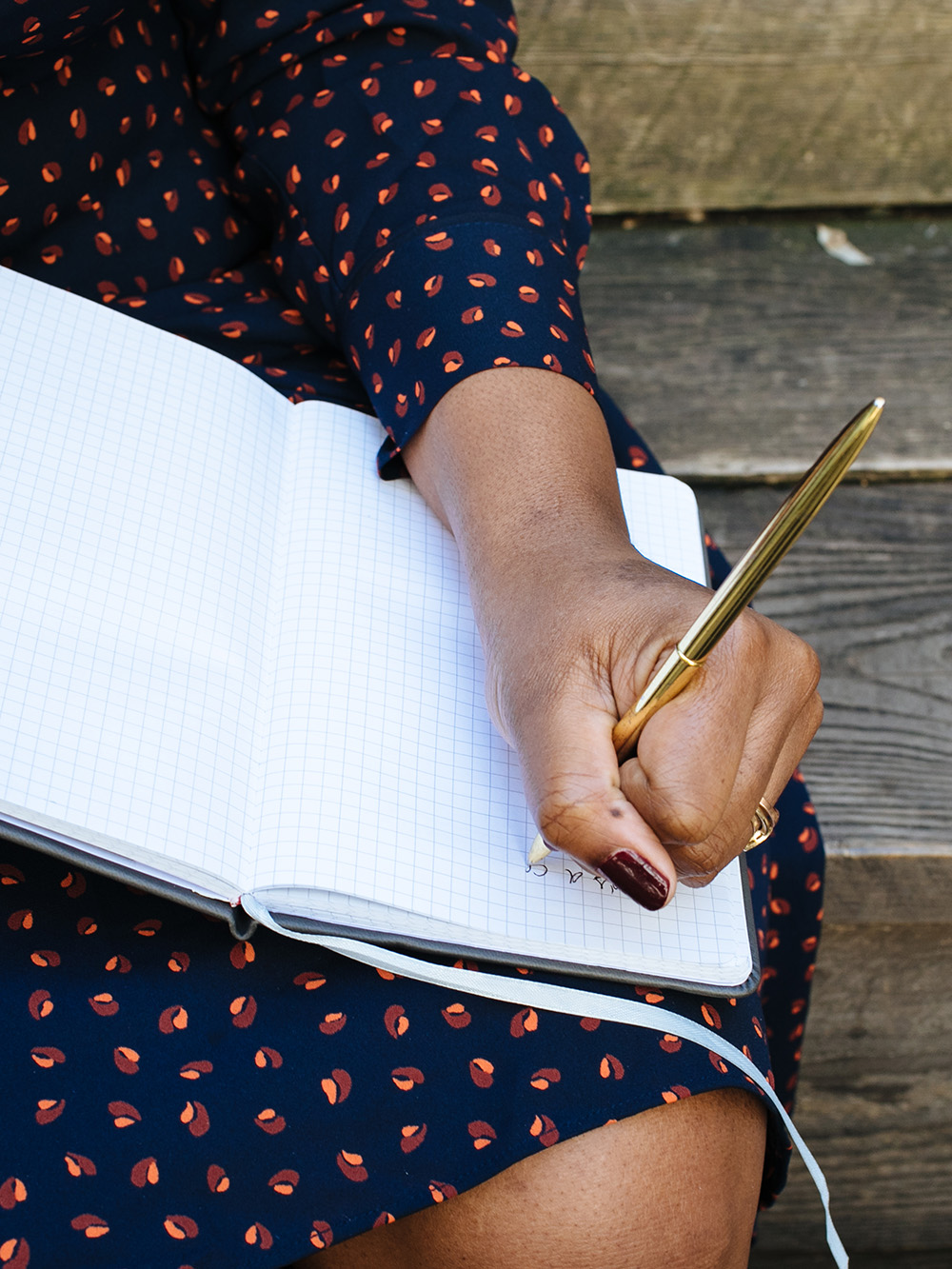
Putting pressure on journaling is a common mistake Goldstein often sees. "Journaling isn't something you can get 'right' or 'wrong,'" she says. "When people get too caught up in journaling the 'right way,' they end up missing the process of offering yourself the space to simply be. It can be a sentence. It can be three pages. It can be what you ate for lunch. It can be how you felt about an interaction at work. It's all fodder for the mill."
14. Remind Yourself It's Just for You
You're journaling just for yourself and no one else—remember that. "This sort of confidentiality reminder in the therapy space allows people to open themselves more fully to their experience," Goldstein says.
15. It's Okay to Quit If It's Not Working
And again, journaling isn't for everyone. So if you're finding it's not really helping you, it's okay to look for something else. "If it turns out journaling simply isn't your thing and doesn't stick for you, that's okay!" Goldstein says. "Ultimately, we want to find self-reflection practices that work for us. For some, that will be through writing. Through others, it's music, dance, therapy, meditation, etc. There are many outlets of expression and reflection to try."
Next, 9 Ways You Can Create Healthy Habits and Stick to Them
This article is provided for informational purposes only and is not intended to be used in the place of advice of your physician or other medical professionals. You should always consult with your doctor or healthcare provider first with any health-related questions.
Sarah is lifestyle writer and editor with over 10 years of experience covering health and wellness, interior design, food, beauty, and tech. Born and raised in Los Angeles, she attended New York University and lived in New York for 12 years before returning to L.A. in 2019. In addition to her work atBest Knockoff Luxury Clothing , she held editor roles at Apartment Therapy, Real Simple, House Beautiful, Elle Decor, and The Bump (sister site of The Knot). She has a passion for health and wellness, but she especially loves writing about mental health. Her self-care routine consists of five things: a good workout, “me” time on the regular, an intriguing book/podcast/playlist to unwind after a long day, naps, and decorating her home.
